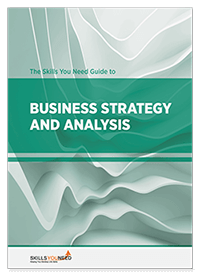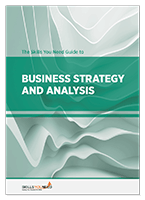Understanding Game Theory
See also: Strategic ThinkingGame Theory is a technique used to understand how and why people make rational decisions.
Although often considered applicable to economics, it has also been used in biology to understand evolution, and more recently applied to business and decision-making by customers and others.
The principle behind game theory is that people behave rationally, and make decisions based on the best possible outcome for them, given the likely behaviour of others.
They may, therefore, end up with a less optimal outcome, simply because they know how others are likely to behave. They compromise, and accept a lesser outcome, for example, to avoid conflict, or because the consequences of poor behaviour are too extreme.
History and Definition
Game theory started out as a look at how people behave when they are playing games. It applies mathematical modelling techniques to the study of human behaviour, and particularly to conflict and cooperation. It was originally applied to situations where one player had to win and others lose, but it is now used more widely for all kinds of cooperation behaviour.
It is therefore perhaps best considered as the science of reasoned decision-making, or logic applied to decision-making.
Generally, game theory is easiest to apply to two-person or two-organisation games, with just a couple of alternative actions, because it keeps things simple. Of course nothing in life is truly simple, but you can usually consider organisational situations in this way.
The Game Theory Matrix
Game theory applies a simple matrix to situations:
| Player 2 | |||
| Action 1 | Action 2 | ||
| Player 1 | Action 1 | Outcome for Player 1/ Player 2 | Outcome for Player 1/ Player 2 |
| Action 2 | Outcome for Player 1/ Player 2 | Outcome for Player 1/ Player 2 | |
Game theory is probably best understood with an example such as the game of ‘chicken’.
In this game, two drivers are driving down a single-track road (or across a narrow bridge) in opposite directions. Each has a choice when they meet: to swerve or to keep going. If they swerve, they will go off the road and therefore take longer, but will avoid a crash. They will also lose face. If both players keep going, they will crash.
Here is the decision matrix for the game:
| Player 2 | |||
| Swerve | Keep going | ||
| Player 1 | Swerve | Tie / Tie | Lose / Win |
| Keep going | Win / Lose | Crash / Crash | |
The key to the game is to understand that Win is better than Tie, Tie is better than Lose, and both are better than Crash.
Looked at rationally, therefore, you can say that both players are likely to swerve, because the consequences of a crash are so severe. The result will be a tie.
However, there is another alternative.
Because you can assume that the other player will swerve to avoid a crash, it is entirely rational not to swerve.
However, if both players think this way, a crash will inevitably result.
In this game, therefore, there are two possible solutions: Tie/Tie and Crash/Crash, and both are equally like to happen.
Economists call this a double Nash Equilibrium, after the economist who identified the idea of an equilibrium: a solution that was more likely to happen because of the benefits to both players.
Game Theory and Cooperation
One of the classic ‘games’ is the prisoners’ dilemma. In this game, two prisoners are able to either stay silent or betray the other. If both stay silent, they will each receive a short sentence (one year). If one betrays the other, the speaker will be released, and the betrayed person will receive a three-year sentence. If both betray the other, they will both receive a two-year sentence.
Here is the matrix:
| Player 2 | |||
| Silent | Betray | ||
| Player 1 | Silent | 1 year / 1 year | 3 years / Free |
| Betray | Free / 3 years | 2 years / 2 years | |
It is clear that the best possible outcome for both is therefore silence. On an individual basis, however, betraying the other makes more sense, because they will go free. The expected outcome is therefore that both will betray each other, and end up with a two-year sentence.
However, over and over again in this type of game, people are far more cooperative in practice than the theory would predict.
Game theorists generally put this down to the idea of repeated games and reputation. In other words, if you are only going to play once, then you can go for the best possible outcome for you, and ignore the other person.
However, if you are going to play over and over again, or you need an ongoing relationship with your opponent, then you need to be more careful. Your opponent will remember what you did last time or how you behaved in a given situation. If it was antagonistic and not cooperative, they will take the necessary action to punish you in subsequent games or situations.
This is where game theory meets business and management.
It makes sense that lack of cooperation (or actively trying to damage someone else) early on in a working relationship will be punished later. Trust is hard to build, and once you get a reputation as a hard player, you will be stuck with it for a long time.
The classic example of a one-round game is buying a second-hand car.
The seller only wants to sell it. He or she has no interest in an ongoing relationship, so can afford to try to hide potential problems with the car, to get you to buy quickly.
Increasingly, however, retailers and businesses understand that buyers may come back again in several years.
They are also likely to talk to other customers and potential customers, including via social media. Word will get round about how you behave, and your reputation will suffer if you try to do anything unethical to clinch a sale.
What, on the surface, looks like a one-off game therefore often turns out to be more complex in practice.
Further Reading from Skills You Need
The Skills You Need Guide to Business Strategy and Analysis
Based on our popular management and analysis content the Skills You Need Guide to Business Strategy and Analysis is a straightforward and practical guide to business analysis.
This eBook is designed to give you the skills to help you understand your business, your market and your competitors.
It will help you understand why business analysis is important for strategy—and then enable you to use analytical tools effectively to position your business.
Using Game Theory
Game theory gives you a way of exploring and understanding rational behaviour.
It helps you to think through how people will behave given your likely behaviour. It is therefore a useful tool when thinking about changes to your business model, or in understanding your customers’ probable behaviour under different circumstances.
Remember, though, that game theory is a purely rational model of decision-making.
Most of us do not make decisions completely rationally. We are also influenced by factors such as whether we liked the person in the showroom, whether the website was easy to navigate, whether someone called us away just as we were about to click and so on.
Like anything else, game theory is only a tool, albeit a very useful one.


